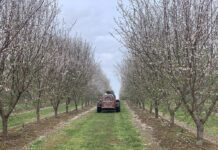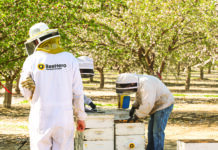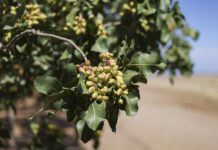
The theft of complete loads of finished product tree nuts is back. Some four years ago, the tree nut industry suffered more than 40 cases of theft of loads of California tree nuts totaling several million dollars. After more than four years, this past month two loads of finished product almonds were stolen using the same methods.
Sophisticated “Fictitious Pick-Up” Ring
In 2015 and 2016, loads of almonds, walnuts, pistachios and even cashews were stolen in the Central Valley by a sophisticated crime ring. The method of theft is known as “fictitious pick-up” and is becoming widespread. Cargo theft using fictitious pick-up hit the tree nut industry hard with millions of dollars in losses that year. Unfortunately, it is a low-risk method of theft with a high potential return. And because there is a lag time between when the theft has occurred and when it is determined, it is difficult to investigate and there is a low risk of apprehension. In addition, under laws in California, people that are caught will not spend any time in a state prison, and most likely will be released early because it is a non-violent crime.
The thieves have stolen identities of legitimate trucking companies, shipping companies and/or brokers. All of this information is online at DOT or company websites, even down to driver names on social media like Facebook. The thieves will then incorporate this information on to their own documents and paperwork, and use pre-paid burner phones which have little to no account information and only activated long enough to get the load. These phones are also difficult to trace, and are incorporated right into the shipping documents.
Thieves set up call centers to answer phones as the “trucking company”, and the fax/e-mail methods used are often untraceable. The thieves arrange for the pickup posing as a legitimate trucking company and have all of the forged paperwork in order. They take possession of the load, but unfortunately, it never arrives at the intended location. By that time, it is already too late.
Recent Cases and Recommendations
In these two most recent cases, the loads were posted on an internet load board, where a bogus hauler signed up for the loads. In turn, and at the last minute, the bogus hauler subcontracted with a legitimate hauler to pick up the loads. After picking up the loads, the legitimate hauler was subsequently contacted and informed to drop the loads in or around Los Angeles. There they were picked up by the bogus hauler and never seen again.
In response to those thefts, the Western Agricultural Processors Association (WAPA) and the American Pistachio Growers (APG) partnered to hold the Emergency Tree Nut Theft Summit to hear from law enforcement officials, risk management companies and industry representatives on what has happened so far, and what you can do to protect yourself. Out of those meetings came a set of recommendations for handlers to follow. Accordingly, we encourage handlers to use the following minimum procedures:
- All pick-up appoints must be made at least 24 hours in advance, and require:
- Pick-up #
- Driver’s name and D/L #
- Trucking company name
- Verify paperwork upon arrival
- Take photographs of driver, truck and trailer
- Take photographs of license plates and VIN#
- Take thumbprint of driver
- Post warnings at truck entrance
- Install high definition surveillance cameras
- Utilize GPS tracking devices
These recent thefts serve as an expensive reminder that you must remain diligent on outbound loads and be extremely wary of any changes, especially those that occur late in the process. Load tracking can be extremely helpful as well. Law enforcement throughout the state has been notified and is on the lookout for this type of activity. Handlers must be proactive. Assume there will be an attempt on your facility and prepare yourself.










